Vinyl is a great flooring option for almost all rooms in your home. However, over time, each room will leave a mark on your vinyl floor, and it’s important to know if you can repair them and how.
While there are a lot of problems that can appear, we’ll only discuss the most common ones – the ones homeowners keep struggling with.
Let’s begin!
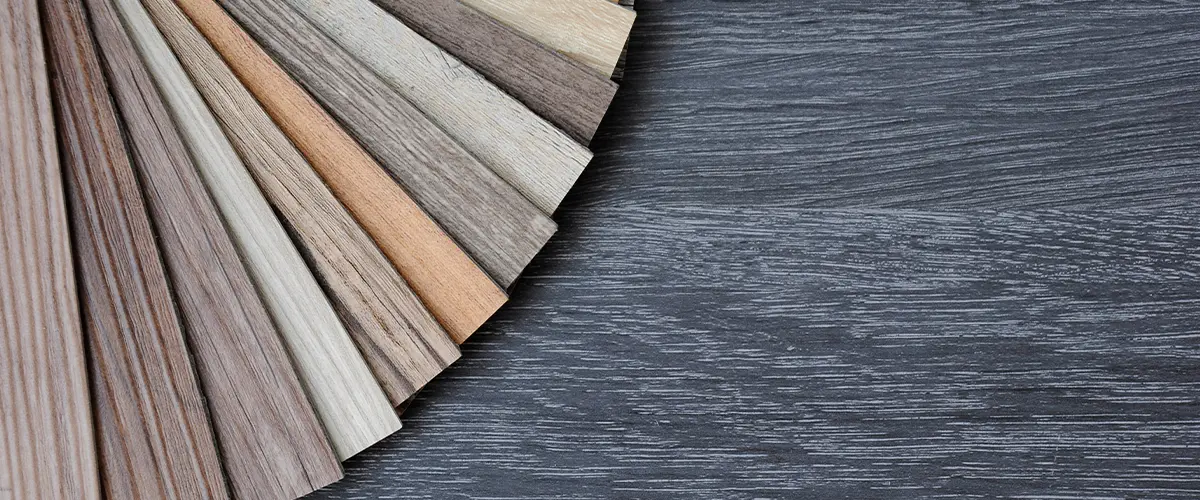
Cupping And Curling
Vinyl planks cupping, curling, and dimensional fluxes are common in every room, but especially in humid spaces like a bathroom or a basement.
If you fail to check and moderate the room’s moisture level and subfloor, you might experience these changes. However, it can only happen to vinyl flooring that expands and contracts under certain temperature levels.
So if the temperature remains somewhat constant in the room, you shouldn’t have to worry about your vinyl floor cupping or curling.
Warping
Warping happens most often when there are temperature changes.
When a room sees constant and dramatic temperature changes, your vinyl plank flooring might expand or contract, which we call warping.
If your floor is in direct sunlight, you could experience warping during installation. Similarly, if you use glue-down planks and there’s water spillage, this can also cause warping.
Peaking
Your floor will experience peaking when two vinyl planks crush and their joints rise. Most likely, peaking occurs when there is no space between the planks to allow contraction and expansion.
This problem is fairly difficult to predict, and even more difficult to fix. Working with a flooring professional will go a long way fixing this issue.
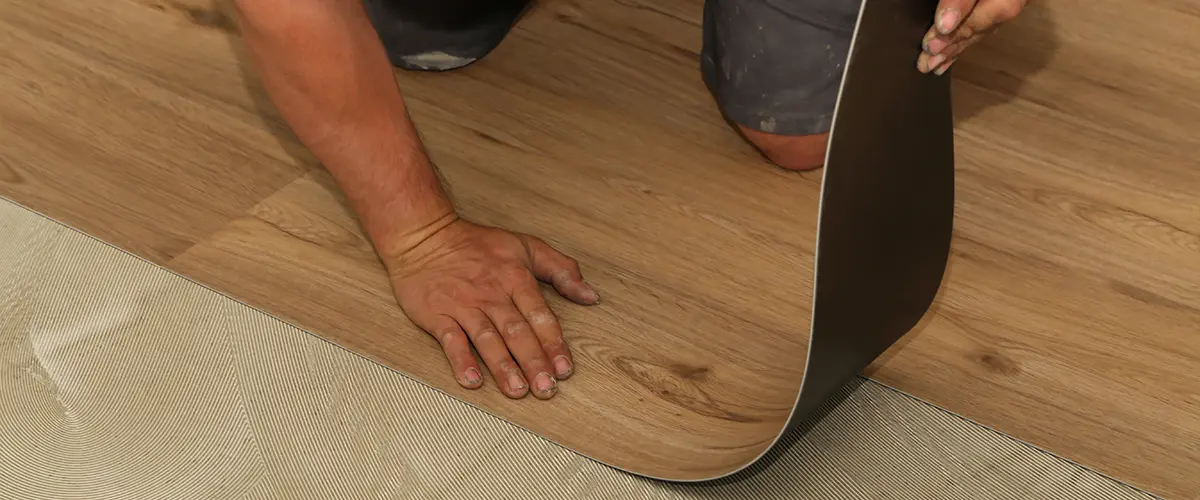
Mildew And Mold
Vinyl planks with mildew and mold are the result of high moisture or water leakage that you had no idea existed. These will further develop into rot and can cause serious health issues and nasty odors.
Mildew and mold are types of fungi that spread very fast and are challenging to remove. You’ll require chemicals and a thorough clean-up, if not even replacing the affected boards entirely.
And if you’re thinking of postponing this repair, know that it’ll keep spreading and will eventually become the number one reason you’ll need to change the entire flooring.
Scratches
Scratches are extremely common in high-traffic areas like kitchens, living rooms, or hallways. Anywhere you’re walking with your shoes on, your vinyl flooring will suffer.
There are a lot of things in your house that can potentially scratch the floor.
For example, you can bring in dirt from the outside that has little pieces of stones. Needless to say but these little stones on your sole will do a lot of harm to the beauty of your vinyl floor. High-heeled shoes will have the same effect, and so will your pets, chairs, or furniture.
The best way to counter these issues is to take your shoes off when entering the home, keep your pet’s nails short, and just be extra careful when moving furniture around.
Stains And Discolorations
Vinyl plank flooring is highly susceptible to staining and fading, particularly if you let liquids or food remain on the surface.
Unfortunately, once it’s absorbed into the material, removing these stains can be quite a hassle and in some instances even impossible; so make sure to clean up any mess as soon as possible.
Another reason for staining or fading on vinyl flooring is the heavy use of chemicals to clean the floor. Many homeowners think using bleach on the floor will clean it better and remove stains, but in reality, bleach does a lot more harm than good.
The best way to clean a vinyl floor is to mop it with a mix of soap and water and then use a dry mop over it. Never let the water dry on your flooring, regardless of what it’s made of.
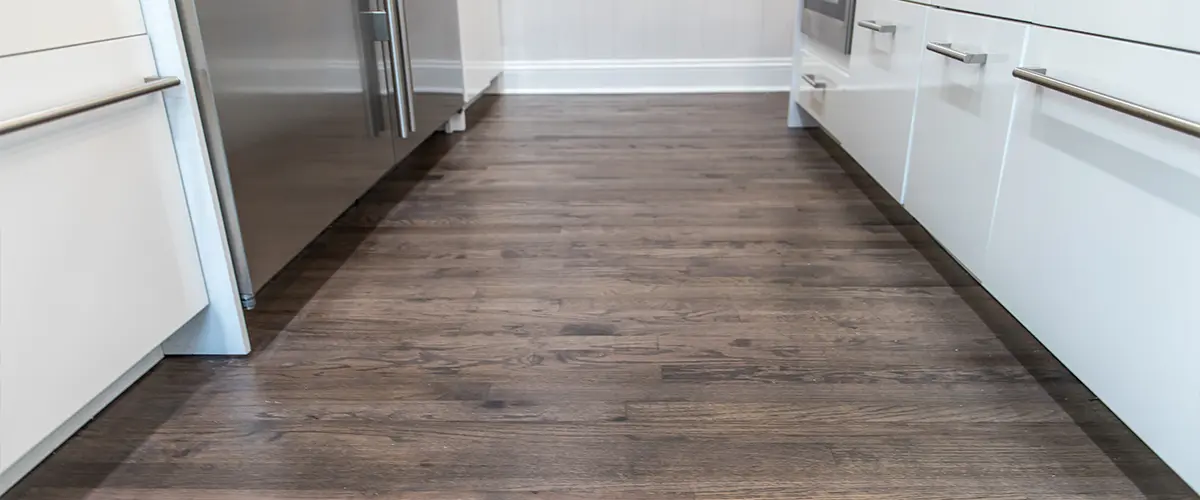
Cracking And Peeling
Over long periods of time, vinyl plank flooring tends to experience cracking and peeling. If this is already happening, you’ll want to take action as soon as possible.
To check if this problem is occurring on your vinyl flooring, you’ll need to check if the glue around the corners of the affected plank is curling and wearing out.
Not only does this give your floor an aesthetically displeasing appearance, but it also causes dirt to build up beneath the boards. If you don’t take measures to remedy the issue soon, it could worsen over time, and you’ll need a new plank.
Here's How To Fix (Or Prevent) The Underlying Reasons Of These Issues
Now that you are aware of the potential issues vinyl floors may bring let us explore possible solutions for each one.
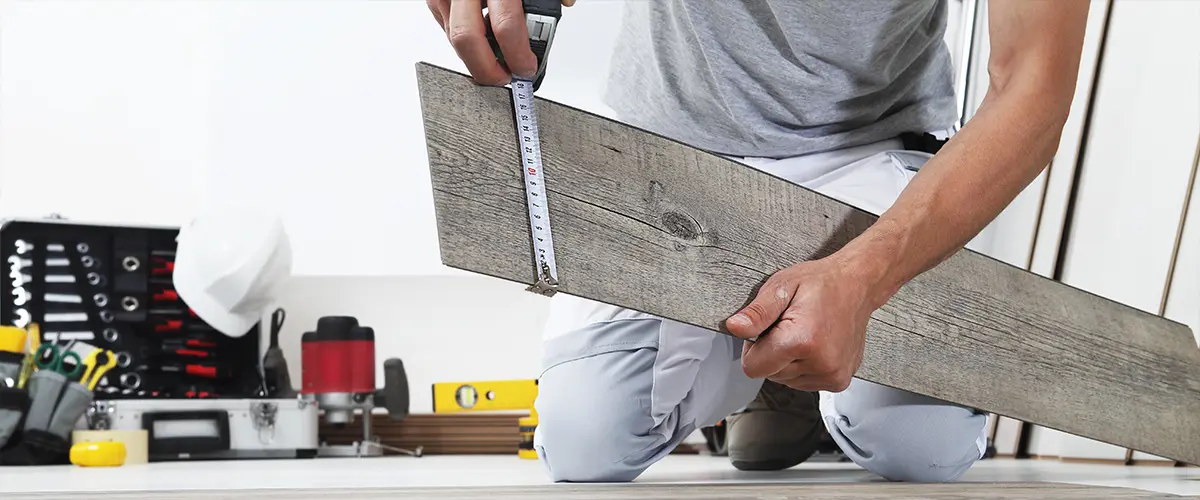
Control The Moisture Level
The best way to control the moisture level of any room is by having a ventilation system in place. For example, bathrooms need a strong exhaust fan to remove moisture. While sheet vinyl flooring holds up better against water leaks, luxury vinyl plank flooring will require more attention, as it’s less water resistant.
Trim The Vinyl Planks
Regular And Essential Maintenance
No flooring is truly maintenance-free, and vinyl flooring is definitely not. You’ll need to regularly clean and check it to keep it safe from these major problems.
Here are some ways to protect your vinyl flooring.
- Use a rug or doormat at every entrance of your home to catch dirt
- Only use a commercial sealant to restore the shine - never use wax on vinyl floors that don't take wax well.
- At least every day or two, do a dry mopping or vacuum cleaning to remove all kinds of dust, debris, and dirt that could cause tiny scratches.
- After cleaning, always allow your vinyl floor to air-dry
- To spare your floor from tears and scuffs, place a plywood sheet under any heavy furniture or appliances before attempting to move them.
Remember that LVP flooring is easier to repair or replace than vinyl sheets. The damaged area of a vinyl floor will be a lot more challenging to deal with. And although LVP holds better against minor scratches of deep scratches, it’s not as water resistant as vinyl sheets.
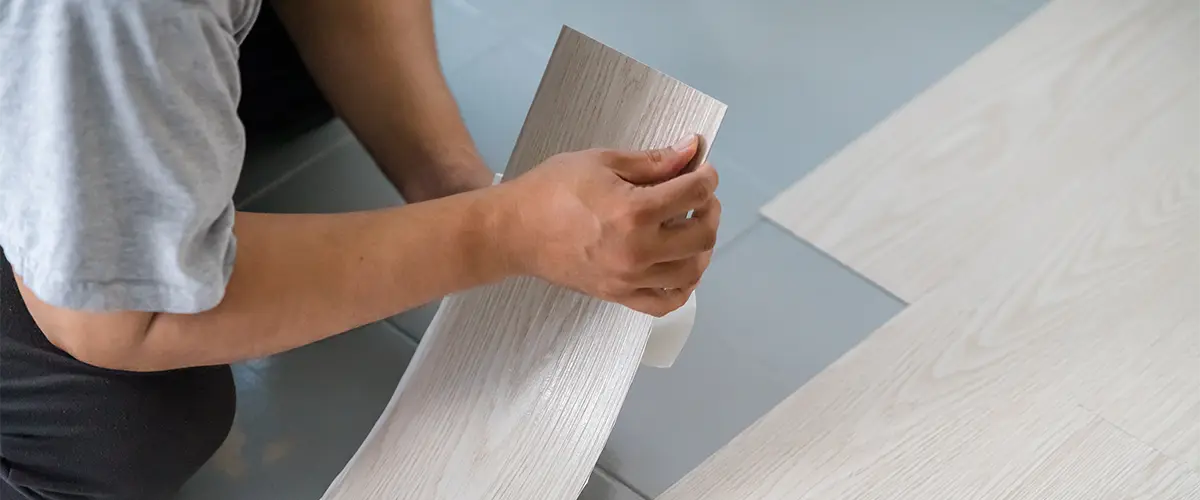
Conclusion
So, this is how you can prevent damaging your vinyl flooring. Sure, you might think these won’t happen to you, but most homeowners are dealing with these issues without them even knowing!
Until a damaged floor starts annoying you in some way (squeaks or moves beneath your feet), it’s unlikely that you’ll actually call a professional and fix it.
However, you should know that getting a consultation early on might save you a lot of money in the long run. Fixing an issue when it’s just beginning is simply much more feasible than replacing an entire vinyl floor.
We’re flooring experts certified by the NWFA, and we’re ready to be at your service 24/7!
If you want to start, give us a call at (843) 900-4880 or request a free quote for your project in Summerville, Charleston, Hanahan, Mount Pleasant, or surrounding areas in SC!
